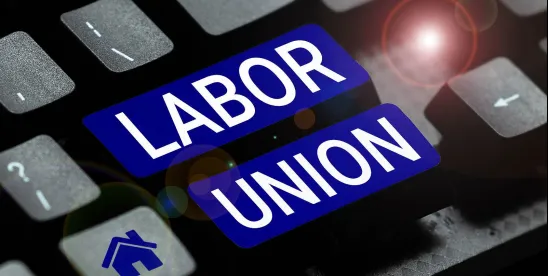In April 2024, the National Labor Relations Board (NLRB or the “Board”) released statistics on union petitions and unfair labor practice charges for its 2024 fiscal year. The NLRB received 1,618 union petitions during the first half of the 2024 fiscal year alone (October 1, 2023 — March 31, 2024), demonstrating a 35% increase over the number of petitions filed with the Board during the first half of the 2023 fiscal year.
That number has continued to increase. As of July 2024, employers and employees have submitted over 2,600 petitions — narrowly surpassing the 2,594 union petitions the NLRB received throughout the entire 2023 fiscal year. The number of employee-filed (“RC”) petitions has increased by 13% from last year. But most notably, the number of employer-filed (“RM”) petitions has skyrocketed up by 2,000% from the last fiscal year. The overall increase in union petitions this year follows the Board’s decision to alter its election procedure rules, effective December 2023. Our article from last year covers the changes in more detail. Most importantly, the revised election rules shorten the period between filing a union petition from 105 days to 59 days — allowing more union elections to take place in a shorter timeframe.
The sharp increase in RM petitions is more closely tied to the Board’s Cemex Construction Materials Pacific, LLC decision in August 2023. The Cemex decision requires an employer to either recognize a union or file an RM petition once a majority of its employees in an appropriate bargaining unit selects a union to represent them. To date, unions have won of 70% of the RM elections and 79% of the RC elections held this fiscal year.
Additionally, Cemex states that, if any employer filing an RM petition is found to commit any unfair labor practice that would disqualify the election, the Board shall dismiss the RM petition and order the employer to recognize and bargain with the union. Following Cemex, unfair labor practice (ULP) charges against employers have increased by 7%, from 9,612 in the first half of the 2024 fiscal year compared to 10,278 in the 2023 fiscal year.
Amid the significant increase in union petitions and ULP charges, the NLRB struggles with funding and staff vacancies. In June 2024, Congress decided to flat fund the Board at $299.2 million. NLRB general counsel Jennifer Abruzzo expressed that the NLRB needs more funding to “effectively and efficiently comply with [the NLRB’s] Congressional mandate when providing quality service to the public in conducting hearings and elections, investigating charges, settling and litigating meritorious cases, and obtaining full and prompt remedies for workers whose rights are violated.”
Unions have faced some employee pushback during this surge in union petitions, as employee-filed petitions to decertify a union have increased by 13% compared to the last fiscal year. In light of these surges in union activity and ULP claims, employers should closely monitor union activity amongst their employees to prepare for the possibility of filing an RM petition. Employers should also keep a particularly close eye on their internal policies and practices when deciding to file an RM petition to avoid any ULP charges that may effectively instate a union by default.
Ryan Chatoo contributed to this article




 />i
/>i

